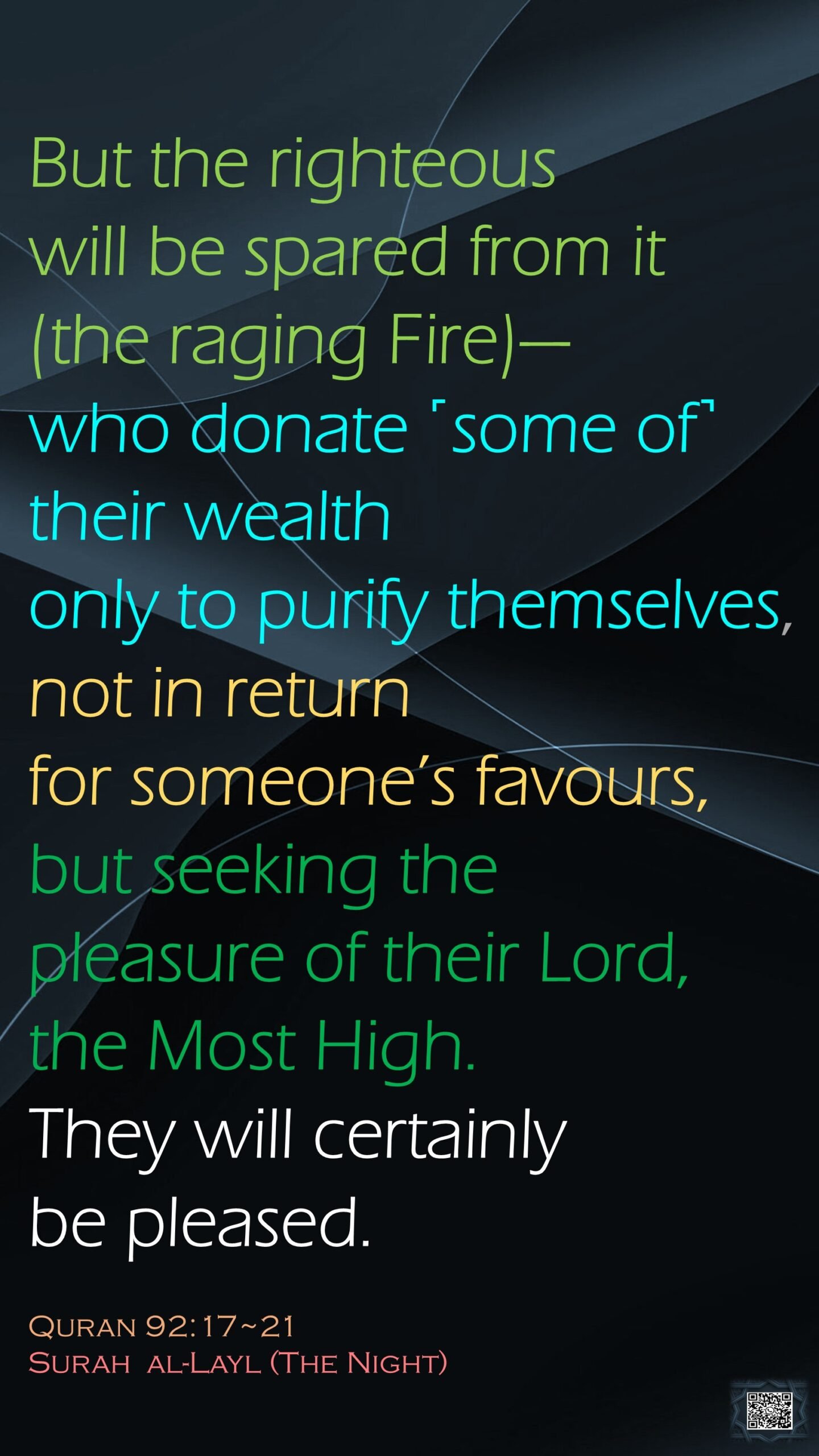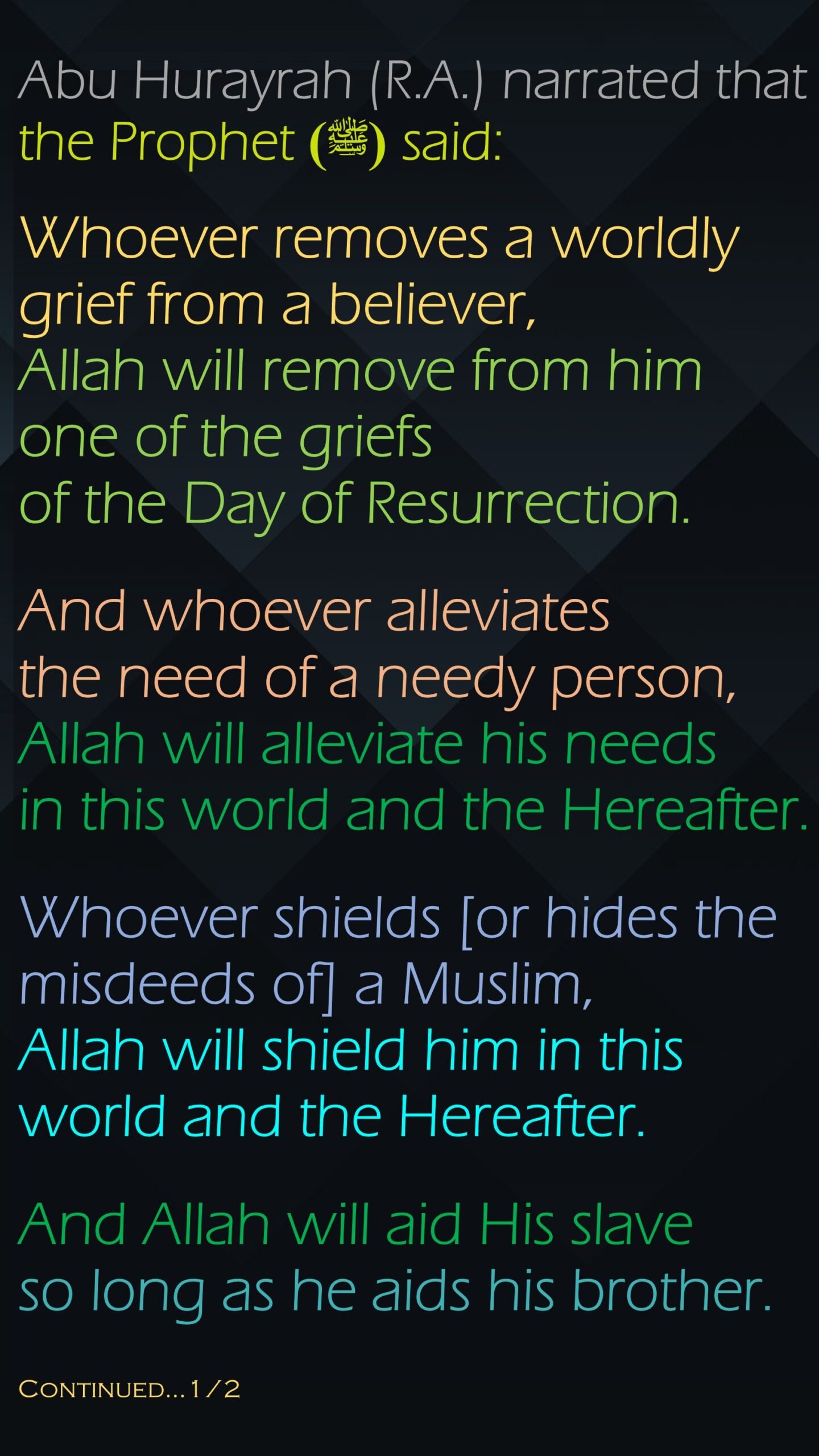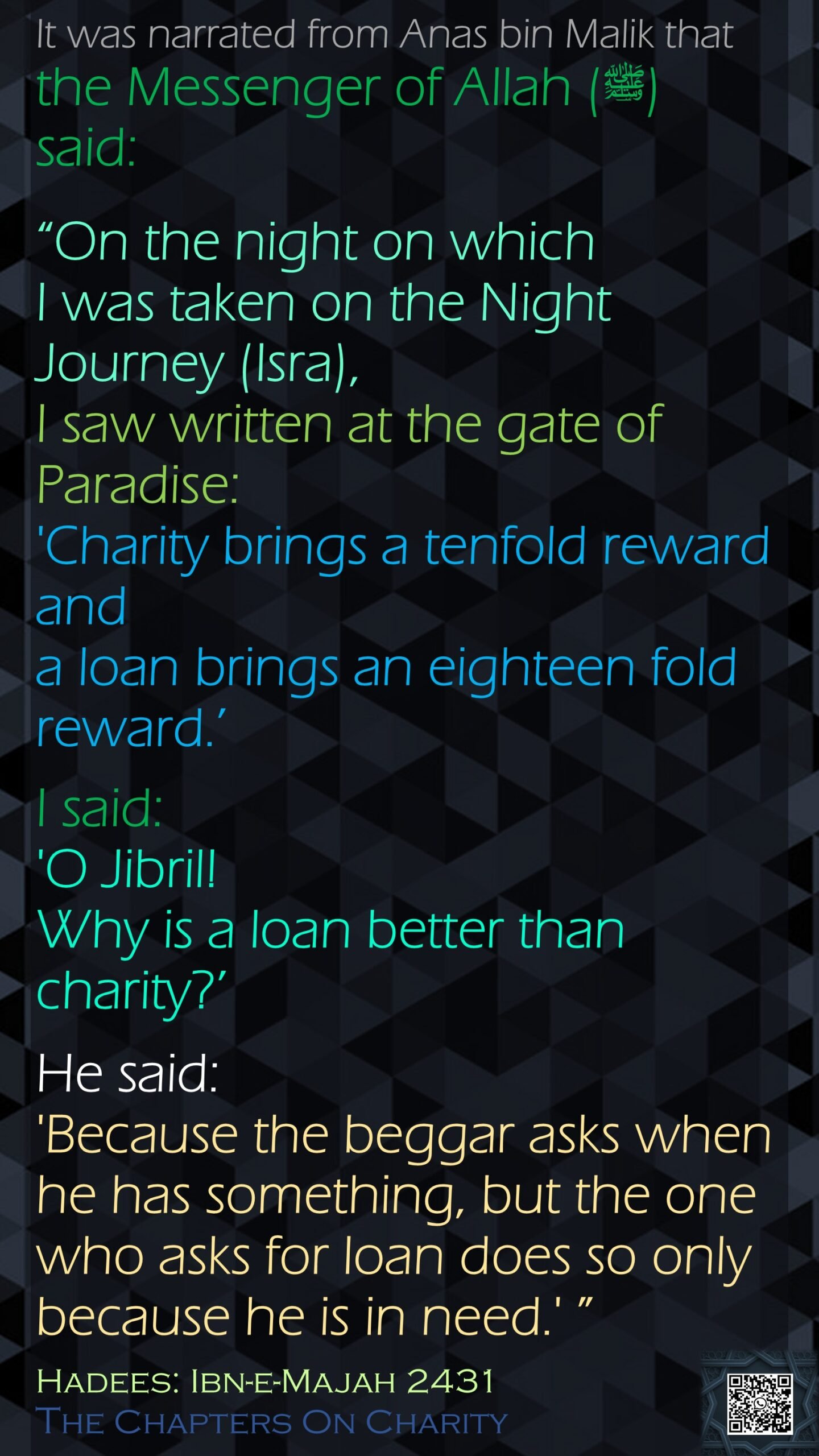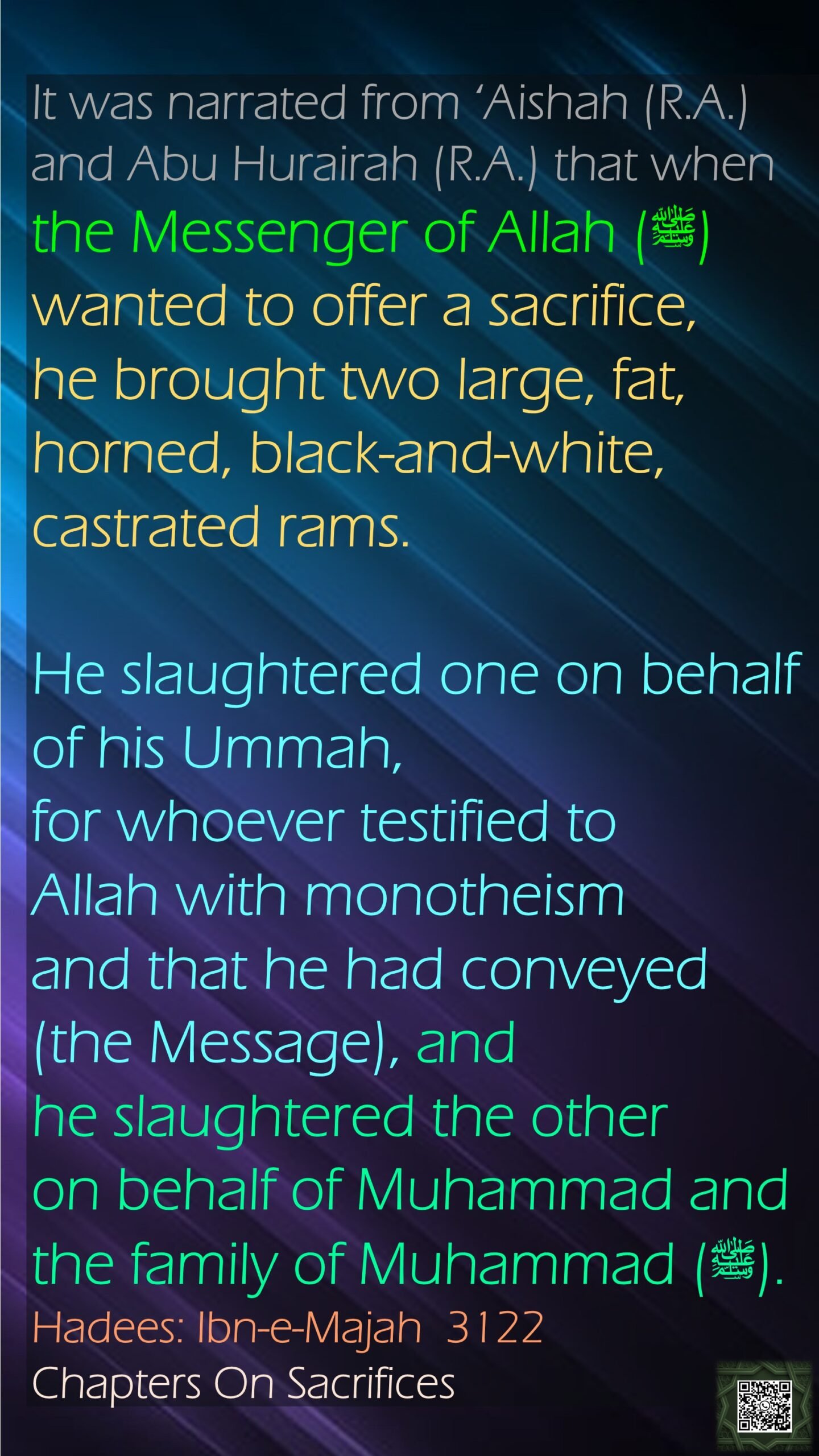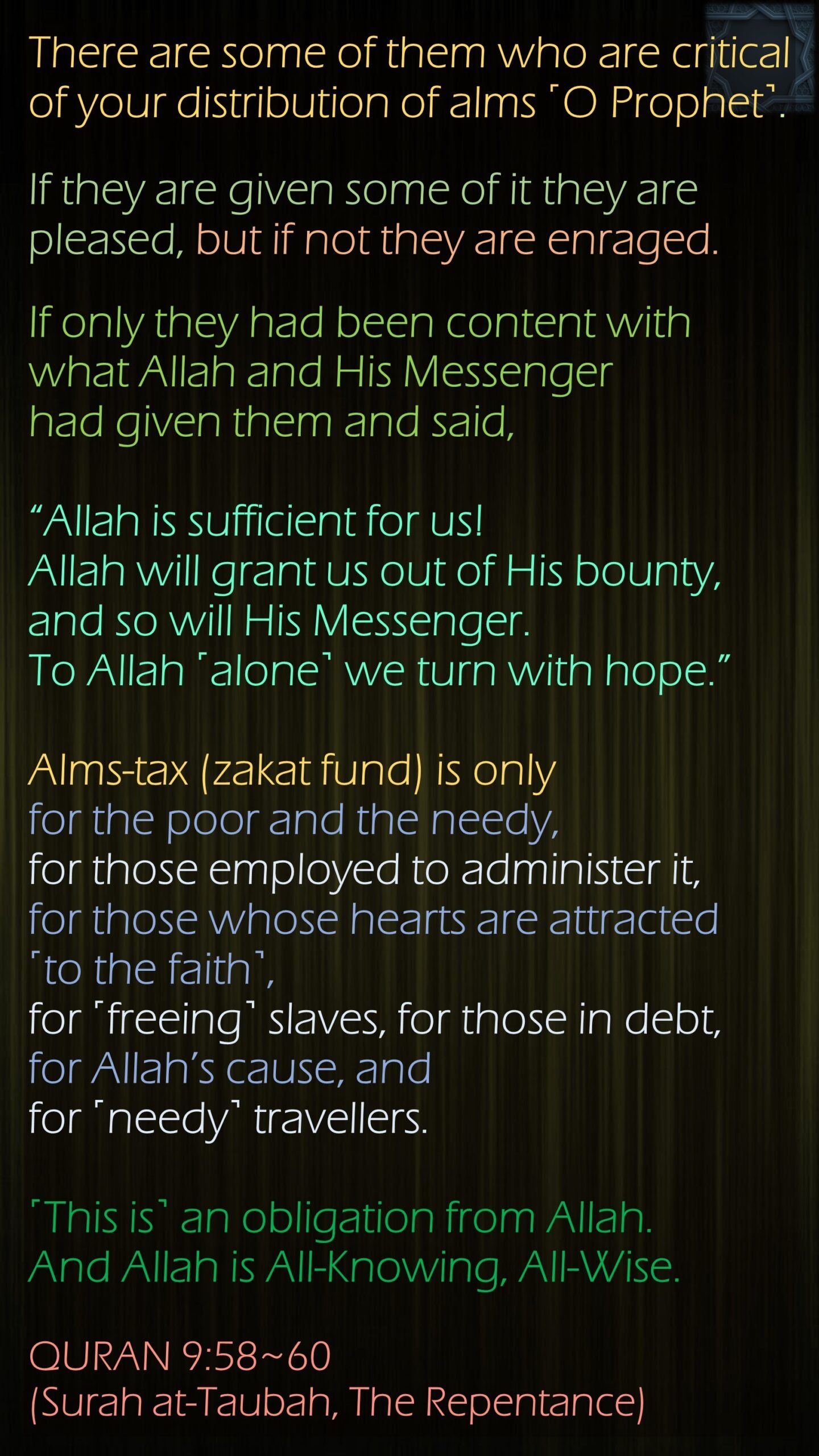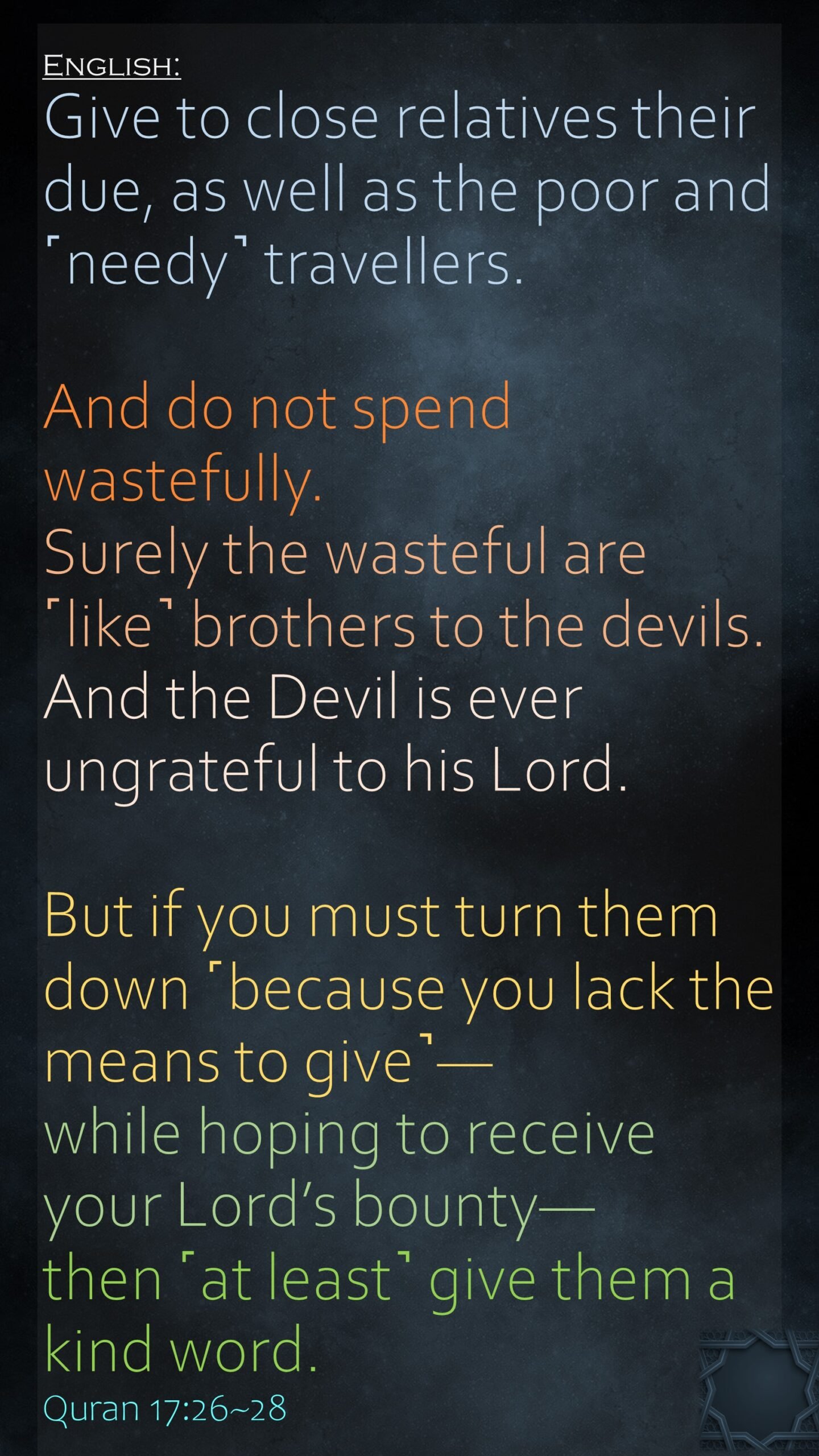8
Jan, 2026
Hadees : Nawawi 36 by 40
Hadees, Islam 036, 040, 36, 40, Abu Hurairah, action.hasten, aid, Allah, Allah mentions, alleviate, angel, Angels, Book of Allah, brother, daily, Day of Resurrection, descend.mercy, envelop, gather, grief, hereafter, hide, house of allah, inspirations, islam, islamic, knowledge, lineage, masjid, mention, misdeed, mosque, Muhammad, Nawawi, need, needy, not, paradise, path, path to Paradise, person, sakeenah, seek knowledge, shield, slow down, sorround, tranquility, World, worldly
6
Jun, 2025
Hadees: Ibn-e-Majah 3122
Islam, Quran 10, 3122, Allah, alms, animal.grateful, ayat, beg, camel, cattle, daily, eat, eniough, fall, family, feed, goat, Hajj, Ibn-e-Majah, inspirations, islam, islamic, lifeless, lined up, miskiin, miskin, Montheism, Muhammad, needy, not, One, pronounce, quran, Sacrifice, self, shaughter, subject, Surah, tax, testify, two, ummah, Zakat, zul hajj, Zul Hijja
11
Apr, 2024
Quran 68:17~29
Islam, Quran Accountability, Al-Qalam, all, Allah, Allah willing, Allah's Will, Ash, ashes, ayat, Chapter 68, creation, daily, day, daybreak, deprive, devsatate, Divine Punishment, Divine Revelation, Ethics, Faith, fixate, fruit, garden, gratitude, guidance, harvest, humility, inspirations, islam, islamic, Judgment Day, lost, Miskeen, Morality, Muhammad, needy, patience, poor, Prophet Muhammad, quran, Reflection, say, sensible, struck, Surah, Surah Al-Qalam\, torment, urge, Verses 17~29, whisper, wisdom, wrongdoer
31
Oct, 2023
Quran 9:58~60
Islam, Quran admister, All-Knowing, All-Wise, Allah, alms, cause, charity, daily, debt, distrivbution, Faith, free, inspirations, islam, islamic, Muhammad, needy, obligation, poor, quran, repentance, slave, Surah, taubah, tax, Traveller, Zakat
28
Jun, 2023
Quran 22:36~37
Islam, Quran al:Hajj, Allah, ayat, beg, blood, camel, Cow, daily, Eid, Eid-ul-Adha, Eid-ul-Azha, feed, goat, good, good-doers, Greatness, guide, Hajj, inspirations, islam, islamic, line up, meat, Muhammad, name, needy, new, piety, proclaim, quran, Qurbani, reches, ritual, Sacrifice, SAWW, scrifice, sheep, slaughter, Surah
31
May, 2023

